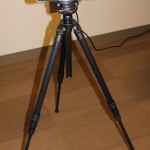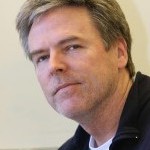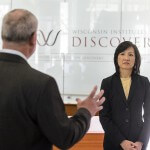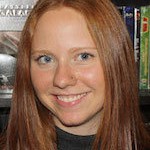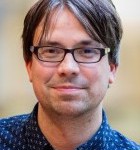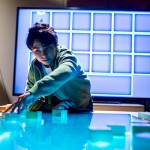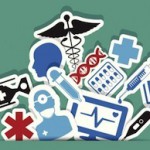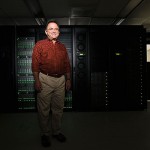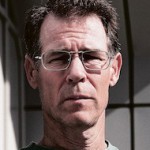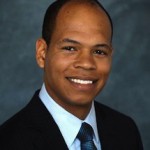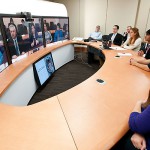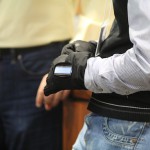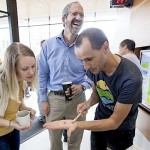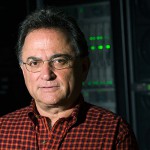Tag Wisconsin Institute for Discovery
Boundless Together, Part 2
A new commercial for UW–Madison will premiere this weekend during the Badger football game. Learn more about the people and projects highlighted in the spot.
McArdle’s Bradfield named interim WID director
Christopher Bradfield, a University of Wisconsin–Madison professor of oncology, has been appointed interim director of the Wisconsin Institute for Discovery (WID).
Patent office director offers views on intellectual property, diversity
The director of the U.S. Patent and Trademark Office spent Wednesday conversing with the UW–Madison community about the opportunities and challenges of intellectual property protection.
UW-Madison faculty leads new Higher Education Video Game Alliance
The University of Wisconsin–Madison is playing a key role in launching the Higher Education Video Game Alliance, a national platform to create more collaborations and sharing among video game scholars, video game industry professionals and the public.
UW-Madison links with New York museum to collect games and learning data
Leaning over a multitouch table, middle schoolers examine a digital underwater environment, shifting blocks across the screen and building lures to capture computerized fish. While the game introduces engineering principles and logic through an entertaining vehicle, the surface of the table is only half the story.
Winning teams address global food system challenges, from food spoilage to hunger
The national Agricultural Innovation Prize: Powered by 40 Chances announced winning student teams during a two-day competition held at the University of Wisconsin–Madison on April 25-26, where students, competition judges, experts from a range of backgrounds and the public explored finalists' projects and larger ideas in business, science and society.
Student teams from across the nation compete for Agricultural Innovation Prize
The University of Wisconsin–Madison will host 30 teams of undergraduate and graduate students from across the country this week for the national Agricultural Innovation Prize.
WPR and UW–Madison team with sci-fi author Kim Stanley Robinson on contest
Renowned science fiction writer Kim Stanley Robinson, author of the award-winning "Mars Trilogy," will select the winners of a national flash-science fiction contest co-organized by Wisconsin Public Radio's nationally syndicated show "To the Best of Our Knowledge" and the Center for the Humanities and Wisconsin Institute for Discovery at the University of Wisconsin–Madison.
Startup fair showcases young, hungry companies
Students eager to plunge into the startup culture got a chance to meet early-stage firms trolling for talent at the 2014 Madison Startup Fair, held Wednesday afternoon at the Wisconsin Institutes for Discovery.
A shift in stem cell research
A team of engineers at the University of Wisconsin–Madison has created a process to improve the creation of synthetic neural stem cells for use in central nervous system research.
Hi-def group videoconferencing offered on campus
If you need to meet with people located beyond Madison – or even within it – but can’t get everyone in the same room, a convenient service on campus may help.
Students showcase wearable computing projects, design thinking
Imagine gloves that transmit data from your phone, keeping your hands free. Or a running jacket that monitors your heart rate and lets you know when you’re being followed. What if a garment could respond to its environment?
Teatime becoming an institution at institutes
For David Krakauer, a cup of tea has long been as much a part of the research process as beakers, computers and lab benches.
Miron Livny: Collaborative spirit supports Nobel Prize-winning science
In 1964, François Englert and Peter Higgs theorized the existence of a subatomic particle that gives all other particles mass. Nearly 50 years later in 2012, a global team of researchers found evidence that supports the existence of the Higgs boson particle at the Large Hadron Collider (LHC) in Geneva, Switzerland.

